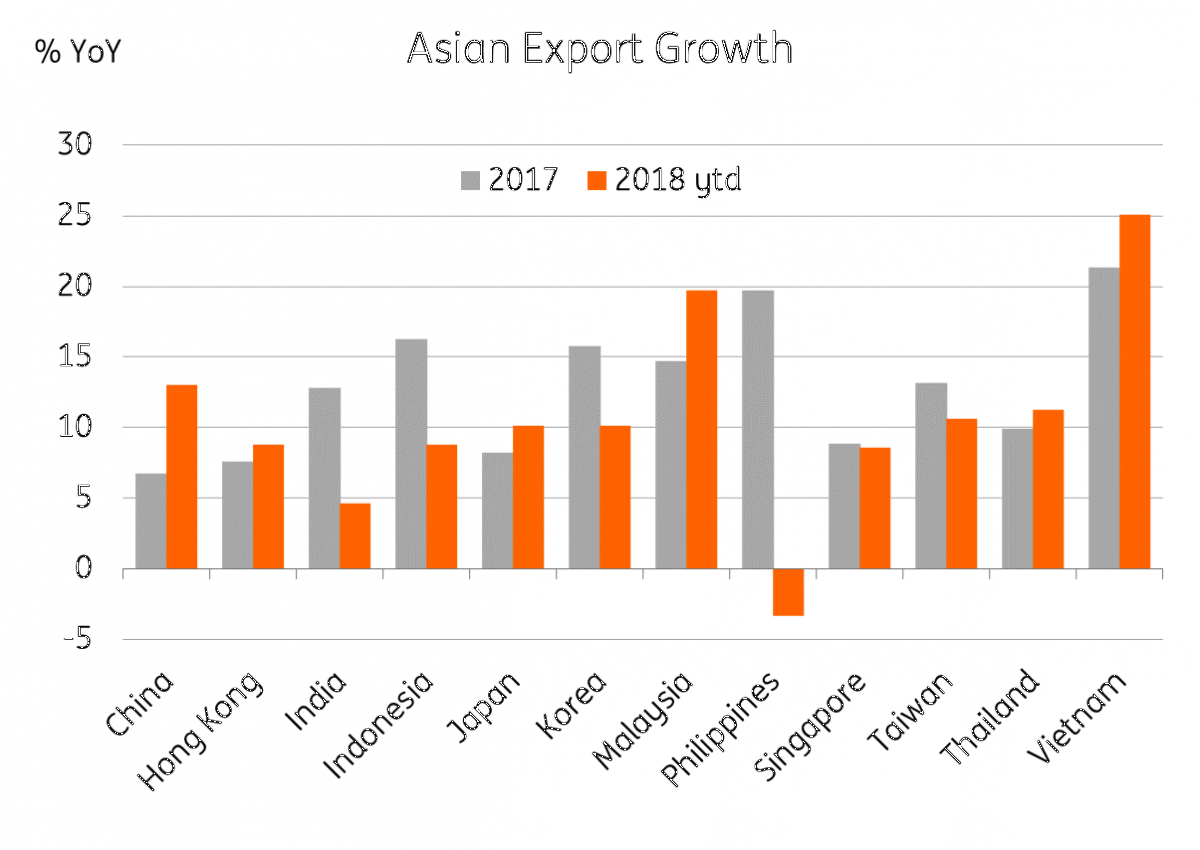Malaysia: Trade surplus hits six-year high
Data supports expectations of strong and steady GDP growth, but nothing matters more for the markets than politics ahead of next week’s general elections
| MYR14.7bn |
March trade surplusA six-year high, above consensus |
Weak imports boost trade surplus
Malaysia’s trade surplus surged to a six-year high of 14.7bn Malaysian ringgit (MYR) in March as imports contracted more than expected by 9.6% year-on-year, while exports rose in line with consensus by 2.2%. Electronics and commodities continued to be the main drivers of Malaysia’s trade growth. The cumulative surplus in the first quarter of the year more than doubled to MYR 33.4bn from a year ago. However, the 5.8% export growth and -0.8% import growth in 1Q18 represent a sharp slowdown from 21% and 28%, respectively, from a year ago.
Still strong trade growth in USD-terms
The authorities report trade data in local currency terms. And the sharp slowdown in trade growth so far this year reflects the high base effect and the price effect from a significant currency appreciation over the year rather than any underlying weakness. The average exchange rate of the MYR against the USD appreciated 13% YoY to 3.92 in 1Q18. Offsetting some of this is the continued upswing in global commodity prices and electronics demand.
After converting to US dollars, export growth of 20% in 1Q18 was the second best in Asia (after Vietnam’s 25%, see chart), and up from 14% a year ago. Almost half of this was from electrical and electronics exports, while commodities including natural gas, crude petroleum, petroleum products, and palm oil contributed three percentage points of total export growth. Import growth in USD terms slowed to 12% from 21% over the same period, and the trade surplus doubled to $8.5bn from a year ago.
Strong economy, strong currency
The wider trade surplus indicates an improved net export contribution to GDP growth in 1Q18, while election spending continued to support domestic demand. We consider our forecast of 5.6% YoY GDP growth in 1Q18 (a slight slowdown from 5.9% due to the high base effect) subject to more upside than downside risk (data due 17 May).
| 5.6% |
GDP growth forecast for 1Q18ING |
Malaysia’s growth-inflation dynamics continue to favour a stable macroeconomic policy. Election jitters will keep the central bank (BNM) from altering policy at the next meeting on 10 May. We retain our view of monetary policy normalisation with one more 25bp BNM policy rate hike in the third quarter, once the political jitters lift. We have revised our end-2018 USD/MYR forecast higher to 3.84 from 3.72 a month ago (spot 3.93, consensus 3.81).

This publication has been prepared by ING solely for information purposes irrespective of a particular user's means, financial situation or investment objectives. The information does not constitute investment recommendation, and nor is it investment, legal or tax advice or an offer or solicitation to purchase or sell any financial instrument. Read more
Tags
MalaysiaDownload
Download article
4 May 2018
Good MornING Asia - 7 May 2018 This bundle contains 4 Articles